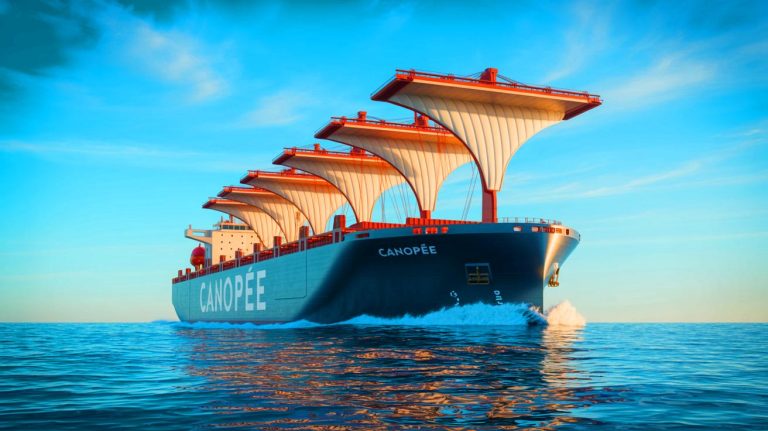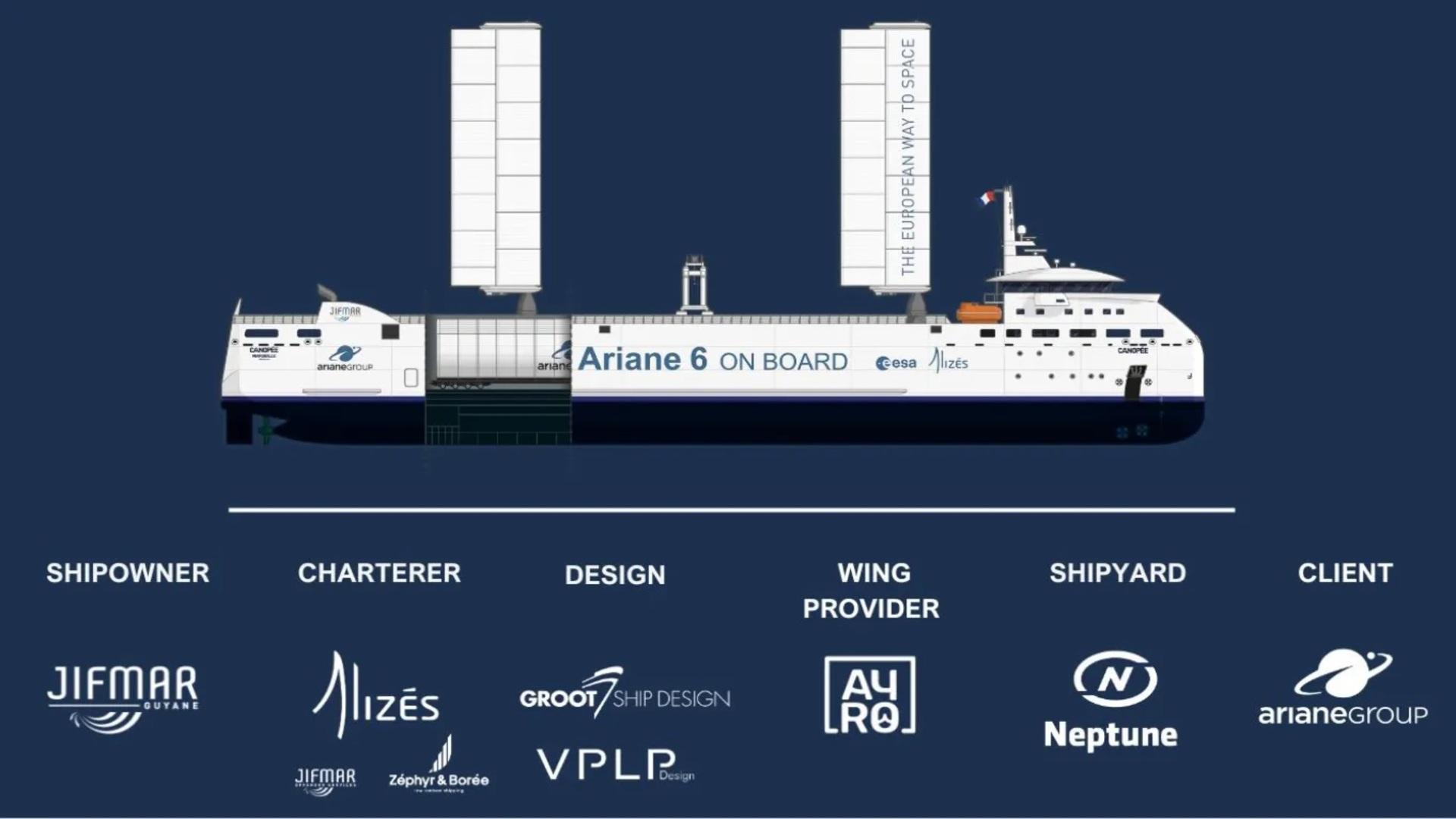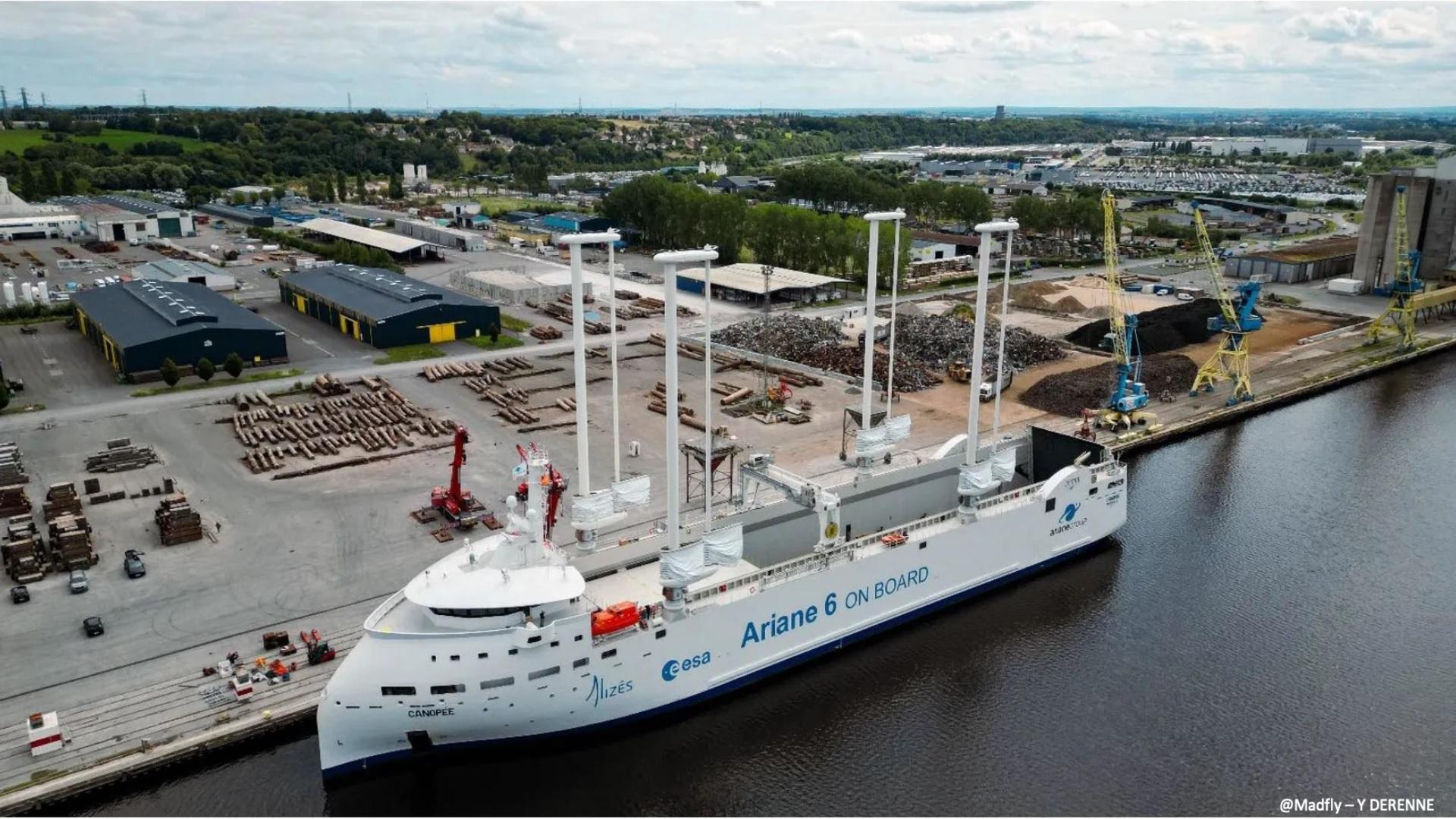| IN A NUTSHELL |
|
In an era where sustainability is becoming increasingly crucial, the maritime industry is under significant pressure to innovate and reduce its carbon footprint. One groundbreaking solution has emerged from the collaboration of several forward-thinking companies. The Canopée cargo ship, a marvel of modern engineering, is leading the charge in demonstrating the viability of wind-assisted propulsion in commercial shipping. This vessel, designed to transport Ariane 6 rocket components from Europe to French Guiana, offers a glimpse into the future of eco-friendly shipping and the potential to revolutionize the industry.
The Innovative Design of Canopée
Canopée’s design is nothing short of revolutionary. Equipped with four OceanWings sails, this cutting-edge vessel exemplifies the successful integration of hybrid electric and thermal power. These sails, created by the French startup OceanWings in partnership with VPLP Design, harness the power of the wind to significantly reduce fuel consumption. Remarkably, Canopée has completed two years of continuous operation, achieving an average daily fuel saving of 5.2 tons. This is equivalent to saving approximately 1,200 kilowatts of engine power daily.
Such savings are not just theoretical; they are backed by robust data. The vessel’s wingsails alone contribute approximately 1.3 tons of daily fuel savings per sail, translating into a reduction of over 20.8 tons of carbon dioxide emissions per day. This level of efficiency not only underscores the aerodynamic prowess of the OceanWings system but also highlights the potential for widespread adoption of similar technologies across the maritime industry.
Proven Success and Consistent Reliability
Beyond fuel savings, Canopée’s operational success is evident in its impressive reliability metrics. Over two years, the OceanWings have maintained a 99.6 percent system availability, a testament to the robustness and efficiency of the technology. The ship’s operators, Alizés—a joint venture between Jifmar and Zéphyr & Borée—have ensured that the vessel remains a reliable component of ArianeGroup’s rocket logistics.
The continuous improvement of the OceanWings Software & AI platform promises even greater efficiency in the future. The vessel’s consistent performance and the industry recognition it received—including the Henri Kummerman Prize from the French Académie de Marine—highlight the successful realization of wind-assisted propulsion as a practical and sustainable solution.
Wind Propulsion: A Game-Changer for Shipping
The significance of Canopée’s achievements extends beyond its immediate operational metrics. On recent transatlantic voyages, the ship achieved fuel savings of 2.2 tons per day per wingsail, equivalent to about 510 kilowatts of engine power saved per sail. This impressive performance, coupled with a speed of 13.7 knots under sail power alone, underscores the transformative potential of wind propulsion technology.
The collaboration between OceanWings, VPLP, Jifmar, Zéphyr & Borée, and ArianeGroup exemplifies the power of innovation in addressing environmental challenges. As these companies continue to refine their technologies, the maritime industry stands on the brink of a new era of sustainable shipping, driven by the practical application of wind energy.
Three-tonne fuel savings per day: This revolutionary winged cargo ship sets a new maritime standard
The Future of Maritime Innovation
Canopée’s journey is a testament to what can be achieved when expertise and commitment to sustainability converge. The vessel’s success is not just a win for its creators but also a beacon of hope for the maritime industry’s future. The seamless integration of wind propulsion into daily operations demonstrates the system’s ease of use and its potential to become a standard in shipping.
As the industry moves towards decarbonization, the role of wind propulsion becomes increasingly vital. Alizés, along with its partners, is leading the charge towards a more responsible maritime world. The question now is not whether wind propulsion will play a role in the future of shipping, but how quickly it can be adopted on a broader scale.
Canopée has set a new standard in the maritime industry, proving that wind-assisted propulsion is not just a concept but a viable and effective solution. As we look to the future, the question remains: how will other sectors within the shipping industry embrace such transformative technologies to further reduce their environmental impact?
Did you like it? 4.4/5 (28)









This is amazing! Are there plans to retrofit existing ships with this technology? 🌬️